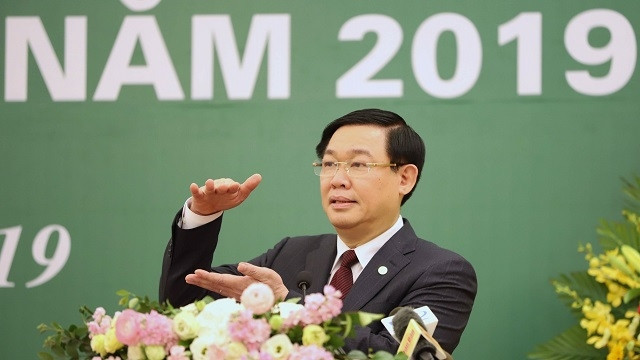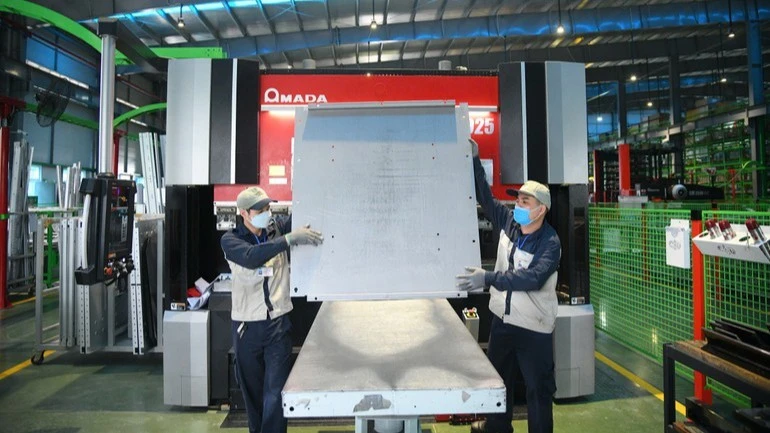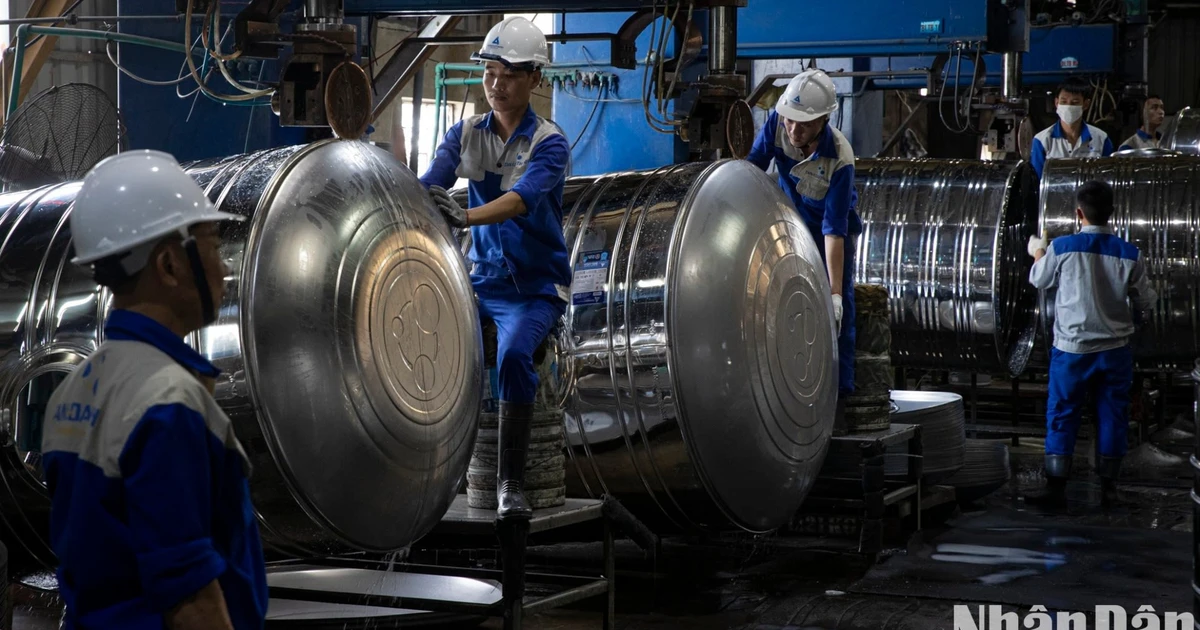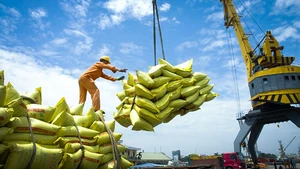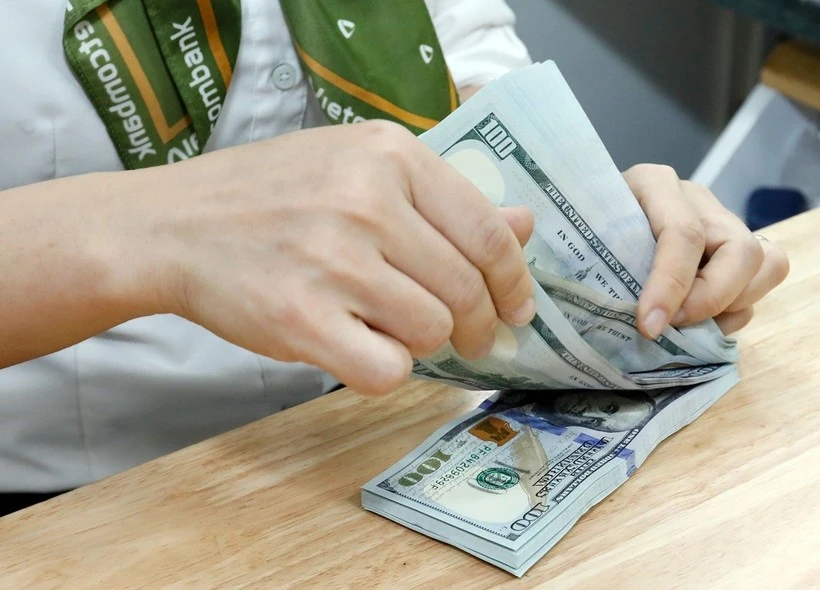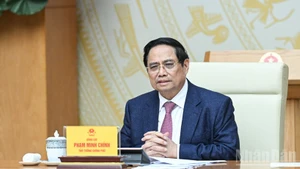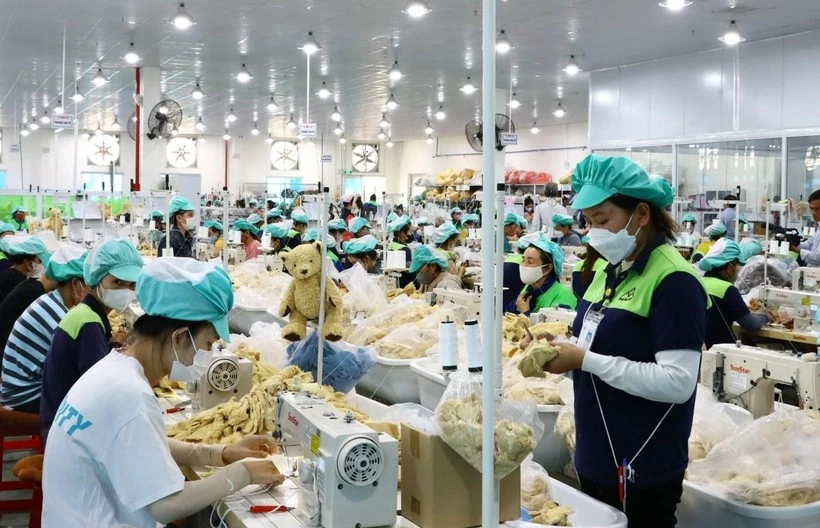The senior government official attended a conference to launch the tasks for stock market development in 2019, held by the Ministry of Finance and the State Securities Commission of Vietnam in Hanoi on February 22.
Reports released at the event showed that, despite negative impacts from the world 's economic, finance and monetary situation, the Vietnamese stock market has recorded significant results in multiple aspects.
As of January 31, 2019, the market had 755 shares and fund certificates listed on two stock exchanges and 804 shares registered to trade on UPCoM, with a total value of listing and transaction registration at VND1.2 quadrillion (US$51.67 billion), an increase of 26% compared to the end of 2017. The market capitalisation scale in 2018 increased by 12.7% compared to 2017, equivalent to 71.6% of the 2018 GDP, exceeding the Government’s target for 2020.
Liquidity on the stock market continued to maintain growth of 29%, from VND5 trillion/session in 2017 to VND6.5 trillion per session in 2018.
Revenue of listed companies increased by 15.2% and profit after tax went up by 21.4%. After more than one year of operation, the derivative securities market has maintained a good and steady growth rate, proving its role as an effective investment and risk management hedge channel, especially when the market has strong fluctuations.
In 2018, the stock market was an effective capital mobilisation channel for both the Government and the private sector, and was considered the most successful market in Southeast Asia in terms of capital mobilisation last year, reaching a total value of over VND278 trillion, up 14% compared to 2017. The value of issuing shares and corporate bonds reached VND64.9 trillion, an increase of 35% compared to 2017 and the equitisation auction reached VND21.4 trillion, an increase of 7.7 fold compared to 2017.
Net foreign capital inflows into the stock market remained high, reaching US$2.75 billion in 2018 compared to US$2.92 billion in 2017, reflecting the strong investment demand of foreign investors in Vietnam despite the recession in other foreign markets.
Agreeing with the judgments that 2018 was a year of overcoming difficulties and achieving success for Vietnam’s stock market, Deputy PM Hue affirmed that the results were due to the solidarity and efforts of market members and the coordinating role by the Government, the Ministry of Finance and the State Securities Commission.
He affirmed that the Government is committed to strengthening and further stabilising the macroeconomic foundation, while increasing the resilience of market subjects with a vision to 2045, including capital - stock markets.
He revealed that the Ministry of Finance and the State Securities Commission have submitted an overall plan to the Government for approval, with the ambition to restructure and develop the stock market in the short term by 2020 and the long-term roadmap by 2025, with the specific target of developing the stock market towards reaching 100% of GDP by 2020 and 120% by 2025.
The key task in 2019 is that the Government will submit to the National Assembly the Law on Securities (amended) to create a legal framework for the stock market to develop into a medium and long-term capital mobilisation channel, thus making the best use of domestic and foreign resources for economic development approaching international practices and improving market rankings.
Therefore, the deputy PM has asked businesses and investors to actively contribute ideas to help the Government and the National Assembly to finalise the law in important contents, such as supplementing the scope of adjustment of derivative securities instruments and government bonds, as well as piloting a specialised stock market for start-up development.
He also set out measures to restructure the market, including promoting the study of automatic circuit breakers in case of strong fluctuations in the market set by law, studying securities loan and lending models based on the financial capacity and risk management capabilities of related organisations, and developing market maker systems in both primary and international markets, in addition to improving implementation, management and supervision capacity.
